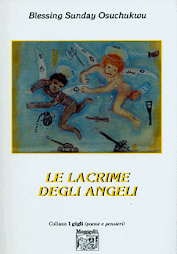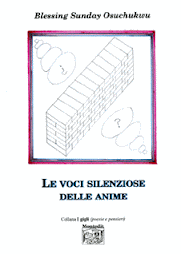A brief introduction:
Until 1990 Italy was considered a country of Emigration rather than Immigration, the legislation of reference that regulated Immigration was the “Consolidated Act on Public Security” of 1931, introduced by the fascist regime of Mussolini.
In 1990, the first immigration law (legge Martelli) was introduced. It served the Authorities mainly to identify the foreigners/immigrants residing in the Italian territory. The authorities were able to have an idea of how many people, their origin, their places of residence, their places of work, etc. It was more of a public security measure than that of addressing the immigration phenomenon.
The second one, the Consolidated Act on Immigration, (legge Turco-Napolitana) was introduced in 1998. It was meant to be a comprehensive framework for the integration of immigrants. It was obvious a good number of immigrants were working and residing in Italy, contributing to the well being of the Nation and merited some kind of “human consideration”. It was mainly about the rights and duties/obligations of immigrants.
The third was the “Bossi-Fini”, 2002: the second one was considered “too soft” and “nice” to curb the immigration phenomenon which was becoming increasingly “problematic”, for the government of Center-rightist. It was mainly about closing up the borders, easy expulsion and general restriction on the rights of immigrants. To be a clandestine became a crime punishable by imprisonment and or immediate expulsion.
Currently, “Bossi-Fini” remains the point of reference as regards to immigration law in Italy, subsequently I'll address the topic from the European point of view and lay more emphases on Refugees and asylum seekers.
Testo Unico delle Leggi di Pubblica Sicurezza del 1931:
http://www.asgi.it/wp-content/uploads/public/t.u.l.p.s.1931.pdf
142. (Art. 143 T.U. 1926). - Foreign nationals are required to report at the Public security authority of the place where they are, give cognizance of themselves and make the declaration of their stay., within three days of their entry into the territory of the State,
The same obligation rests with strangers, whenever they transfer their residence from one municipality to another.
The strangers who stay for pleasure in the territory of the State, for a period not exceeding two months, must do only the first declaration of entry (Article repealed by art. 13, DL December 30, 1989, no. 416 ).
144. (Art. 145 T.U. 1926). - The public security authorities have the right to request, at any time, the identification documents of the foreigner, and give cognizance of himself.
150. (Art. 151 T.U. 1926). - Subject to the provisions in the Criminal Code, aliens convicted of a crime may be expelled from the country, and escorted to the border.
The Minister of the Internal affairs, for reasons of public order, may order the expulsion and
the escort to the border of the stranger staying temporarily or residing in the territory of the State
In 1990 comes the first Immigration legislation of our time: legge 39/1990 “Legge Martelli” (Martelli was a socialist – vice prime minister in Andreotti's government (Christian Democrat): http://www.citinv.it/associazioni/LA_TENDA/Martelli.htm
Formally, it was seen as a measure relating to refugees and displaced persons, the main subject of the text of the law, which extensively defines the status of refugee and the right to political asylum connected to it. The second part of the text instead is considered as an attempt, no matter how late, to regulate the exponential increase in migration of the 80s, through government programming of the influx of non-EU foreigners according to the needs of production and employment in the country. It indicates clearly from the start what was to become a constant of legislation: the management of migration from an economic point of view.
With regard to the fight against illegal immigration, the Martelli Law for the first time introduces imprisonment and fines, aggravated by the circumstance of the criminal contest. Minor penalties, if we consider those currently applicable: imprisonment up to two years or a fine of up to two million Italian lire, increased to six years plus a fine ranging from ten to fifty million lire in the case of collaboration in crime or exploitation.
The stay of foreigners in the Italian territory is subject to the issuance of a permit by the police or the Commissioner of Public Security of a certain zone that indicates the reason and the duration of the stay permit which ranges from a minimum of three months to a maximum of two years.
Stay permit is requested within 8 days of entry in the Italian territory.
The Amnesty and “Moratorium” clause in the Martelli law made it possible for most foreigners to obtain their stay permit for the first time: it was enough to give evidence of your nationality, dwelling and working place.
Student stay permit cannot be renewed two years after the normal years of study of any particular course.
Every Stay permit has to be renewed 10-15 days before expiration, after which it is no more renewable. It is possible to change the purpose of soggiorno as long as there is evidence to sustain it.
Re-entry visa is issued every time a foreigner desires to travel out of the country, stating specifically the period of time, after which will not be allowed to enter in Italy.
With regard to employment, the Martelli law seems more aimed at healing a previous situation instead of drawing a comprehensive framework for the future, substantiating a moratorium designed to remedy the deficiencies which compelled foreign workers, for necessity, to work illegally and at a lower wages.
Despite the short breath of the legislation as a whole, the Martelli law has, however, set the slow and initial stabilization of migrants, through the first steps to integration and participation in public life.
An expelled foreigner is issued a paper (“Foglio di via”) to voluntarily leave the Italian territory within 15 days, but in case of violence the subject is accompanied to the borders, by force.
In 1998: Decreto Legislativo 25 luglio 1998, n. 286 (Legge Turco-Napolitano) – il Testo Unico sull'Immigrazione - Consolidated Act on Immigration. The Government was Center-Leftist. http://www.interno.gov.it/mininterno/site/it/sezioni/servizi/legislazione/immigrazione/legislazione_200.html
This law was introduced to improve the one of 1990 and it's mainly about “Rights and Duties” of immigrants. I can say it is the beginning of “Integration” policies in Italy.
Listed below are some of the major characteristics:
Immigrants/Foreigners still present at the border or in the territory of the State are entitled to the fundamental human rights under the rules of domestic law and by international agreements in force.
Immigrant/foreigner with papers enjoys the rights in civil matters attributed to an Italian citizen, participates in the public life of where he lives and abides with the Italian laws. The illegal immigrant (clandestine) gets expulsion letter and expected to leave the Italian territory on his own within the time stipulated on the decree, the expulsion decree could be appealed.
All foreign workers legally residing in Italy and their families are guaranteed equal treatment and full equality of rights (sanitary services, education, etc) with respect to the Italian workers (in implementation of ILO Convention. 143 of 24 June 1975, ratified by Law of 10 April 1981, n. 158)
Immigrants have the right to “Reunite” with their family members
Children under 15 years are not expelled and have the obligation to register at Schools anytime.
For purposes of communication to the foreigner of the measures relating to Entry, Residence and Expulsion, acts are translated, even briefly, in a language understandable to the recipient, or, when this is not possible, in French, English or Spanish, with preference to that indicated by the individual.
Introduction of “Contratto di soggiorno”: a citizen or a foreigner legally residing in Italy signs a contract of work with the applicant, declaring also to provide him with accommodation.
60 days after expiration it is not possible to renew “permesso di soggiorno”, if a pre-request for it's renewal is not made.
The quota system (flusso) was also introduced: countries are give certain number of working visas every year in exchange of helping to stop illegal migration. Visa could also be issued to foreigners who come to do “Seasonal” jobs.
Introduction/reinforcement of CPT (Centro Permanente Temporaneo), centers where migrants awaiting identification and or expulsion are detained (deportation centers).
Introduction of “Carta soggiorno”: obtainable after 6 years of legal residence, and as a worker. Citizenship is obtainable after 10 years of residence and 6 years of work legally registered (taxed).
Immigrants could do autonomous businesses and could also employ other foreigners.
In 2002 comes yet another “restrictive” law on Immigration, modifying and replacing the existing one: Legge 30 luglio 2002, n. 189 (Legge Bossi-Fini) The Government was Center-Rightist led by Berlusconi.
http://www.interno.gov.it/mininterno/site/it/sezioni/servizi/legislazione/immigrazione/legislazione_424.html
The following are the major modifications introduced by the law:
The crime of illegal immigration: any foreigner who entered illegally in Italy or found without papers is considered a criminal and severely punishable (imprisonment and expulsion).
Stay permits - soggiorno - (first, renew, modifications, etc) are requested through the Post Office
The borders are more controlled, illegal migrants repelled at the borders. Refugees and asylum seekers are not accorded their rights as most of them are considered “illegal migrants” and rejected at the borders, forcing them to go to countries where they are subjected to eventual persecution.
Deportations with escort to the border
Residence permit tied to existing work
Severe and increased penalties for human traffickers
Amnesty for domestic workers, carers for elderly, sick and disabled, stay permit issued to them for at least 1 year
Use of Navy ships to fight smuggling (human traffickers).
Sanctions on those who provide assistance to migrants at sea
Imprisonment (1-4 years) for foreigners who stay back after being issued with expulsion decree (“foglio di via”)
Bilateral accord with Libya (Gheddafi) to block migrants from departing from their Ports.
No automatic citizenship for people born in Italy by foreigners: at the age of 18 years one has to request for it.
CPT (Centro Permanente Temporaneo) changed to CIE (Centro di Identificazione e Espulsione). It is important to know that the monthly cost of detention of an immigrant was estimated at € 1,650 in 2008,
(A cura di Blessing Sunday Osuchukwu)



















